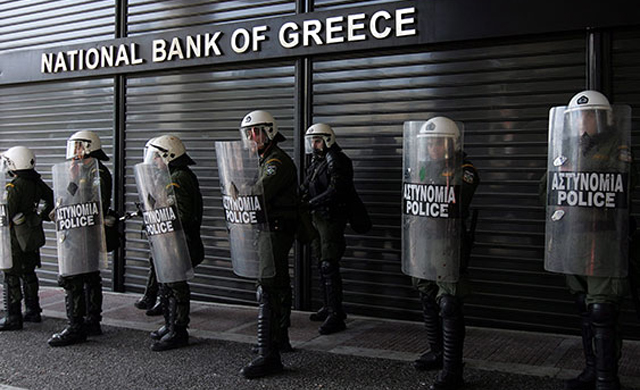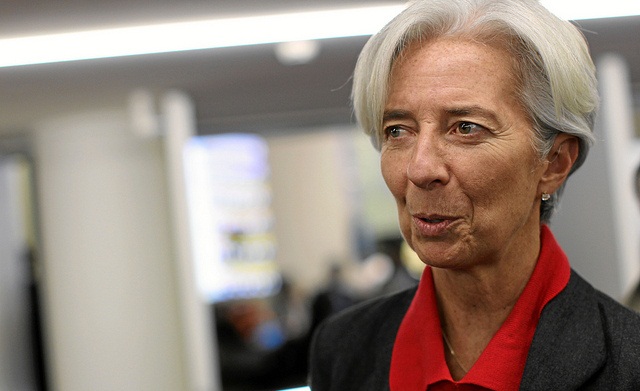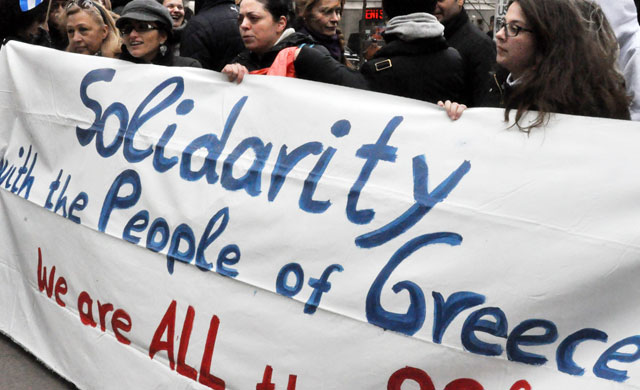Greece Debt Crisis - Latest Update | |
|---|---|
Embattled Tsipras accepts harsh austerity measuresDespite the people of Greece voting overwhelmingly against further austerity measures, the Greek government has acquiesced to its creditors demands for public spending cuts of €13 billion in return for $50 billion of further funding. This move, whilst keeping Greece within the EU and Euro, is likely to be highly controversial with the 61.3% of Greeks who voted against further cuts as well as many within the ruling Syriza party. |
 |
How will your trading and investments be affected by the ongoing debt crisis in Greece? That's a tricky question, but one you need to consider as the situation progresses.
Times of crisis can be very bad for unprepared investors. This page is designed to help keep you up to date with what is going on in Greece by pointing you at relevant stock market data, helping you stay in the loop and make well informed investment and trading decisions.
Further down the page you will find a list of upcoming events that concern the Greek debt crisis as well a list of previous events that have had an effect on progress.
The page is updated regularly, so keep checking back for more info.



€2 billion Treasury Bills due
|
You can watch how the Greek markets are doing on our dedicated Greek Markets page. |
€450 million IMF payment due & meeting of Eurozone Finance Ministers
|
Our Forex Cross Rates page will keep you up to date with a basket of currencies. |
Samurai loan payment due
|
EURJPY could be a good thing to watch today. |
Meeting of ECB Governing Council
|
Keep an eye on FTSE 100, DAX and the Euro during the press conference. |
Interest due on Government bonds
|
As the situation progresses the ADVFN Newspaper will add new articles about the Greek debt crisis. |
Government bonds mature
|
Another day for keeping a close eye on the FTSE 100, DAX and the Euro. |



Greece people vote "No" to austerity measures
|
Greece people vote "No" to austerity measures
|
Greece Defaults on €1.6 billion IMF loan
|
Euro vs Dollar dips below 1.1
|
FTSE 100 opens down 150 points
|
Greek parliament approves referendum, banks to stay shut
|
Referendum on bailout terms called
|
Lack of clarity holding markets back
|
Anti-bailout radical left Syriza party come to power
|
Snap general election announced
|
Tom Winnifrith calls for Greeks to stop paying tax
|
Greek's vote to back bail out
|
General election leads to no new government
|
Second bailout package finalised
|
Anti-austerity rally turns to riots and looting
|
EU loan rates cut and repayment periods extended
|
Trade unions organise 48 hour strike
|
Greek debt rating lowest in the world
|
Loan details finalised
|
Austerity measures announced
|
Greek credit rating slashed by Standard & Poors
|
Greek government requests bailout from EU & IMF
|


It looks like you are not logged in. Click the button below to log in and keep track of your recent history.
Support: +44 (0) 203 8794 460 | support@advfn.com
By accessing the services available at ADVFN you are agreeing to be bound by ADVFN's Terms & Conditions